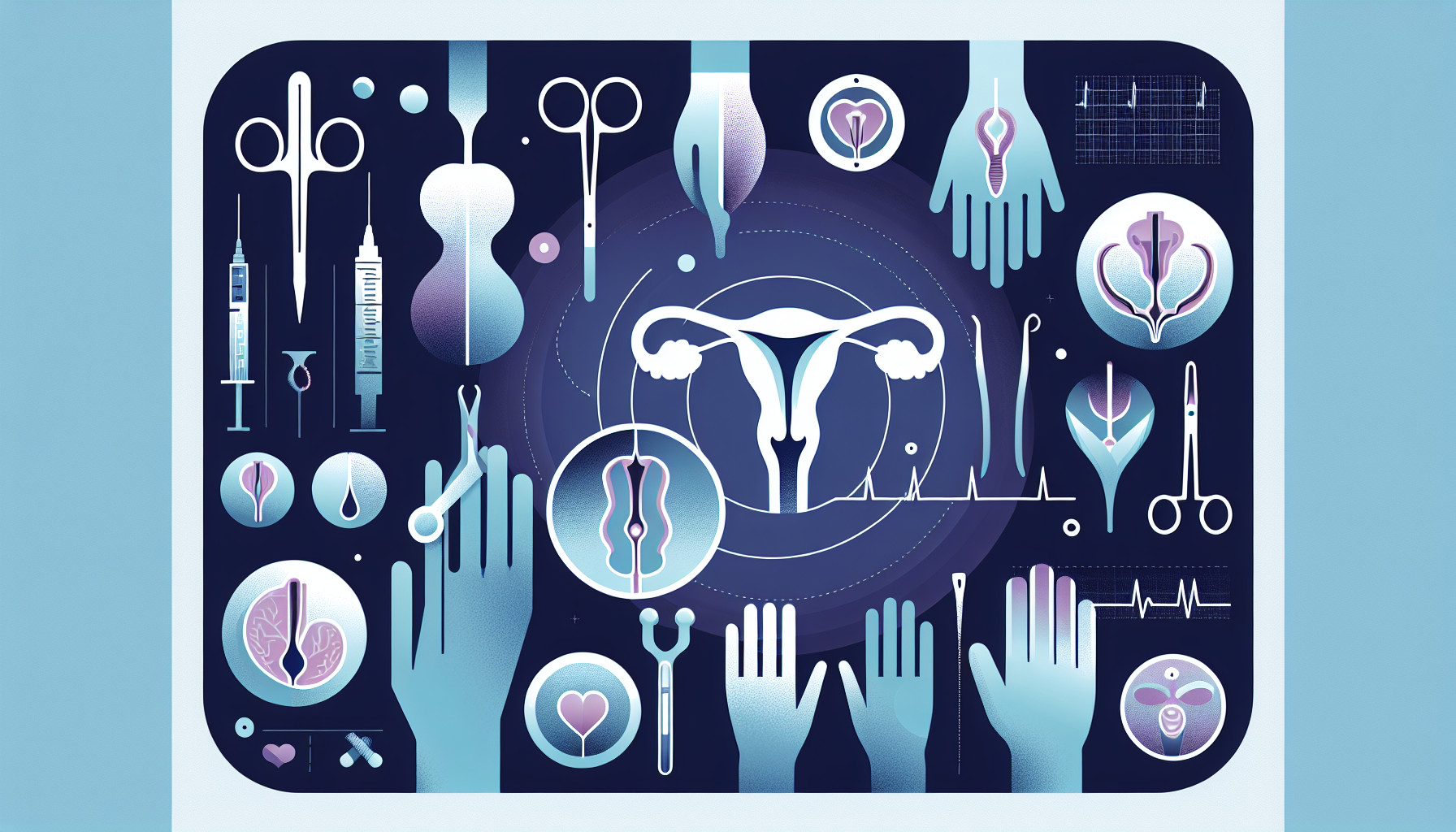Our Summary
This research paper discusses a rare case of a woman with Mayer-Rokitansky-Küster-Hauser (MRKH) syndrome, a condition where a woman is born without a uterus and vagina. For some of these women, surgery is needed to create a new vagina. However, if a small, non-working uterus is left in place after this surgery, it can cause problems down the line. The paper describes a 31-year-old woman who had such a surgery four years prior, but then experienced abdominal swelling due to a large mass growing in her lower abdomen. This mass turned out to be a type of tumor called a leiomyoma, which had to be surgically removed.
The paper also mentions seven other similar cases that have been reported between 2004 and 2020. The authors emphasize that doctors need to be careful about potential complications in women with MRKH syndrome who have had this type of surgery, and choose the best treatment methods accordingly.
FAQs
- What is Mayer-Rokitansky-Küster-Hauser (MRKH) syndrome and what kind of surgery is often required for women with this condition?
- What complications can arise if a non-working uterus is left in place after the surgery to create a new vagina in women with MRKH syndrome?
- What is a leiomyoma and how is it related to the case of the 31-year-old woman who had surgery for MRKH syndrome?
Doctor’s Tip
One helpful tip a doctor might give a patient about vaginoplasty is to make sure to follow up regularly with your healthcare provider to monitor for any potential complications, such as the growth of tumors or other issues related to the surgery. It’s important to communicate any symptoms or concerns you may have with your doctor so that they can provide appropriate care and treatment.
Suitable For
Typically, patients recommended for vaginoplasty include those with Mayer-Rokitansky-Küster-Hauser (MRKH) syndrome, transgender individuals seeking gender confirmation surgery, individuals with vaginal agenesis or other congenital abnormalities, and individuals who have experienced trauma or injury to the vaginal area. In the case of MRKH syndrome, vaginoplasty may be necessary to create a functional vagina for sexual intercourse and menstruation. It is important for healthcare providers to carefully assess each patient’s individual needs and goals before recommending vaginoplasty.
Timeline
Before vaginoplasty:
- Patient is diagnosed with Mayer-Rokitansky-Küster-Hauser (MRKH) syndrome, a condition where a woman is born without a uterus and vagina.
- Patient undergoes pre-operative assessments and consultations with medical professionals.
- Patient decides to proceed with vaginoplasty surgery to create a new vagina.
After vaginoplasty:
- Patient undergoes vaginoplasty surgery to create a new vagina.
- Patient may experience pain, swelling, and discomfort post-surgery.
- Patient follows a strict post-operative care plan, including taking prescribed medications and attending follow-up appointments.
- In some cases, complications such as the development of tumors or other issues may arise, requiring further medical intervention.
What to Ask Your Doctor
- What are the potential risks and complications associated with vaginoplasty surgery for someone with MRKH syndrome?
- How will the surgery be performed and what is the recovery process like?
- Will I need any additional procedures or follow-up surgeries after the initial vaginoplasty?
- What are the long-term implications of leaving a non-working uterus in place after vaginoplasty surgery?
- How often should I follow up with a healthcare provider after the surgery to monitor for any potential issues?
- Are there any lifestyle changes or restrictions I should be aware of after vaginoplasty surgery?
- What are the chances of developing tumors or other complications in the future after undergoing vaginoplasty for MRKH syndrome?
- How will vaginoplasty surgery affect my sexual function and overall quality of life?
- Are there any alternative treatments or options to consider for creating a new vagina in cases of MRKH syndrome?
- What is the success rate of vaginoplasty surgery for women with MRKH syndrome, and what outcomes can I expect in the long term?
Reference
Authors: Qiu S, Xie Y, Zou Y, Wang F. Journal: J Int Med Res. 2021 Dec;49(12):3000605211066394. doi: 10.1177/03000605211066394. PMID: 34929102
